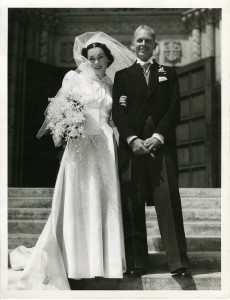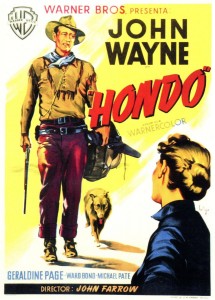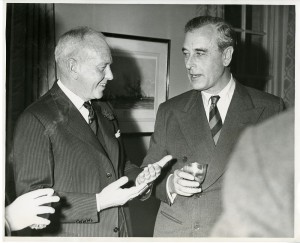
Roman Catholic convert, author, and Hollywood movie director, John Villiers Farrow, combined zest for adventure, appreciation for family, and a longing for faith. He was born on February 10, 1904 in Sydney, Australia. His father, a soldier in the Australian Army, survived the First World War, although his mother died at a young age. Farrow went to sea as a youth and was somewhat of a roving adventurer before reaching San Francisco, California, in 1923. By 1927, he was in Hollywood, where nautical expertise and nascent writing abilities resulted in work as a film script consultant and technical adviser.
Farrow worked for several Hollywood studios before leaving to write for a number of movies in England. He also visited French Tahiti in the South Pacific, where he wrote a Tahitian language dictionary and a novel Laughter Ends. Returning to Hollywood in 1933, he was arrested on a false passport and expired visa and given five years probation (he became an American citizen in 1947). He continued writing and published Damien the Leper in 1937, which went through multiple reprints and was translated into several languages. He later wrote Pageant of the Popes, and a biography of Sir Thomas More.

He briefly served as an officer in the Royal Canadian Navy in the Second World War, before being invalided out in 1942. Returning to film as a director, he won the New York Film Critics’ Circle award and an American academy award nomination for Wake Island in 1942. He also did a documentary called The Hitler Gang in 1944; film noir classics such as His Kind of Woman in 1951; a John Wayne western called Hondo in 1953; another World War II movie The Sea Chase (also starring John Wayne) in 1955; and shared an academy award as co-writer of Around the World in Eighty Days in 1956. His last movie was 1959’s John Paul Jones. Finally, he had tried unsuccessfully to make a film on Christ’s life called Son of Man.

Farrow was married in 1936 to Irish actress and screen legend Maureen O’Sullivan, famous for playing the lovely and cultured Jane opposite Johnny Weismuller’s iconic Tarzan of the Apes. Farrow died suddenly of heart disease on January 27, 1963 at his home in Beverly Hills. He was survived by his wife and six of their seven children, most notably daughter Mia Farrow, who was just beginning her film career. Among many awards, he had been granted a Knighthood of the Grand Cross of the Equestrian Order of the Holy Sepulchre of Jerusalem by Pope Pius XII. Nearly fifty years after his death he remains one of the greatest Australian born filmmakers. The John Villiers Farrow Papers at Catholic University’s Archives contain background research, notes, and drafts used in his books as well as correspondence, newspaper clippings, photographs, and several manuscripts and reviews of films he produced. For more on Catholics and the movies generally, see Legion of Decency Keeping the Big Screen Clean and A Priest, a Werewolf, and a Bunny Walk into a Theater.
